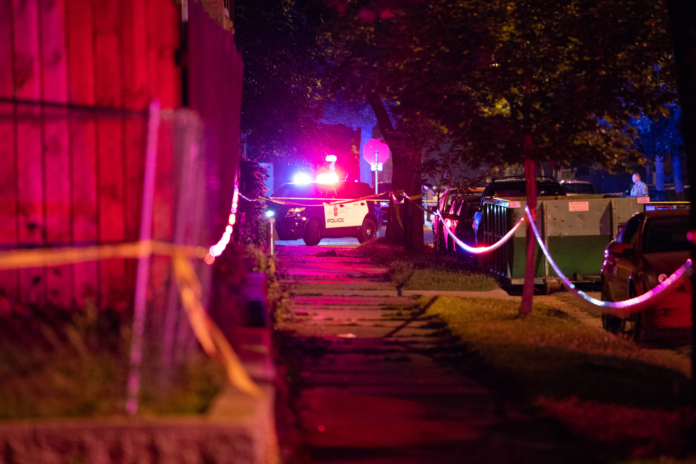(Intellectual Takeout) — The city that witnessed the death of George Floyd is seeing more deaths this year, only this time they aren’t those of a full-grown man arrested for passing a counterfeit bill: they are the deaths of children caught in crossfire.
The most recent death was that of six-year-old Aniya Allen, who was shot in the head while riding in a car with her mother on their way home. Her shooting is part of a recent crime surge, the Star Tribune reports, which includes an elevated number of homicides and 22 shootings of children this year alone. Officials are desperately trying to figure out how to get things under control, but in so doing, they may have overlooked the root cause of the violence.
More policing is one of the first options to prevent the tragic end of innocent children’s lives. This is problematic, however, as in Minneapolis “the department is badly understaffed — with dozens of officers having retired, resigned or gone on medical leave in recent months,” the Star Tribune reports. Perhaps one cannot blame officers for leaving the force, particularly when they experience beatings and other assaults while on the job.
Police are the favorite whipping boy in Minneapolis, which Aniya’s mother may have unintentionally highlighted when speaking to reporters outside of Aniya’s hospital room the day before her daughter died:
“Pointing around the sidewalk where friends and family were gathered, Antrice Sease asked why so few people were there. If her daughter had been shot by a police officer instead of a gang member, as some have speculated, the story would’ve been all over the news and the street outside the hospital would have been filled with outraged protesters demanding that something be done, she said.
‘When is this going to stop? When is this going to end?’ she repeated.”
Others argue that police are too toxic and would be better replaced with “violence interrupters.” In essence, this is just a fancy term for official peacemakers trained to de-escalate arguments before they dissolve into gun battles. Minneapolis is in the process of training these individuals and hopes to have them hit the streets soon to do their work. This sounds lovely in theory, but how feasible will it be in practice?
Minneapolis Mayor Jacob Frey addressed these problems in a recent press conference, during which a resident highlighted another angle of this issue. “If you’re gonna stop [the violence],” he said, “it’s not the police, because the police come after the fact.”
Taken at face value, that statement is exactly right. One does not prevent all violence with police. Often violence is stopped long before police come on the scene, through parents being present in their children’s lives, teaching them right from wrong, allowing them to be a part of a stable, loving community, taking them to church, and letting them hear and see the benefits of moral, upright living.
As someone who has long worked with children and families in Minneapolis, I can tell you that in many cases, this simply is not happening. Homes are chaotic, headed by single mothers with strings of live-in boyfriends who regularly add to the group of half-siblings populating the house. Moving from house to house or from city to city, children have little chance to put down solid roots. Those who go to church and learn to live uprightly often see these principles contradicted within their own homes by parents who have little interest in living upright lives themselves.
Many in these communities grow up completely rootless, lacking a strong community, a strong family, and strong morals. It is this rootlessness that lies at the heart of today’s violence, a fact which French philosopher and Christian mystic Simone Weil explains in her 1949 book, The Need for Roots:
“Uprootedness is by far the most dangerous malady to which human societies are exposed, for it is a self-propagating one. For people who are really uprooted there remain only two possible sorts of behavior: either to fall into a spiritual lethargy resembling death, like the majority of the slaves in the days of the Roman Empire, or to hurl themselves into some form of activity necessarily designed to uproot, often by the most violent methods, those who are not yet uprooted, or only partly so.” [Emphasis added.]
America has cast family, faith, and community aside — along with the values these institutions espouse — viewing them as unnecessary and old-fashioned in our modern high-tech world. In doing so, we have also cut off the roots of many, who lash out. In that sense, neither police nor community mediators will really be effective antidotes to our society’s increasing levels of violence. Only an intentional re-rooting in timeless institutions and values will do the trick, which will take years and great effort. Are we up to the challenge, or would we rather just watch our society slowly die, taking the innocent along with it?

















